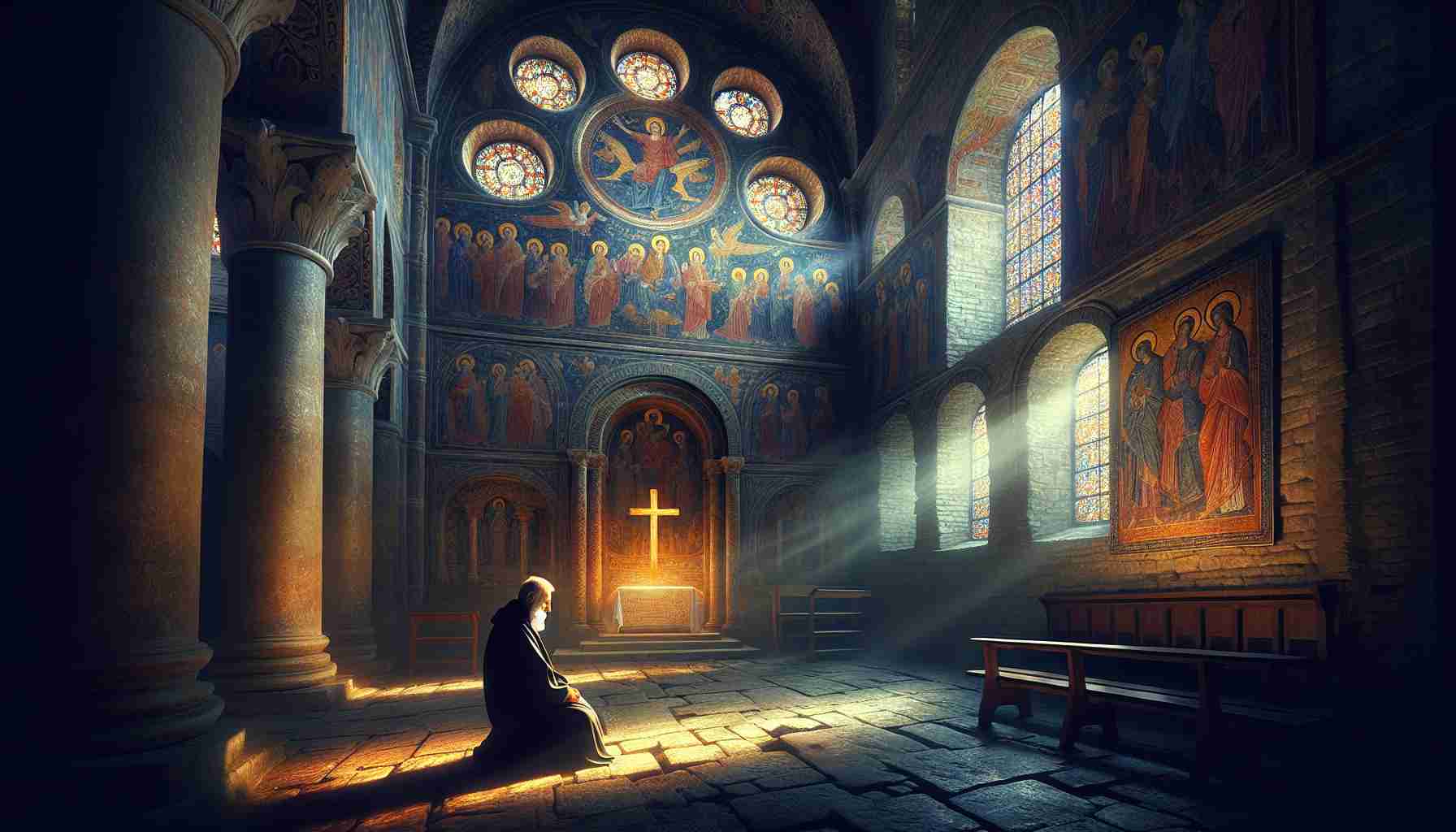

Beneath the pale gold light of a Roman dawn, the great basilicas cast long shadows across marble courtyards. The banners of the empire, stitched with laurels and eagles, snapped in the breeze above a silent palace. Inside that palace, the body of Emperor Valentinian II lay still, cold beneath imperial purple. His youth—just twenty-one—had not spared him. The sacred oils had barely dried on his forehead, anointed in hope and faith, when whispers of foul play began to crawl through Rome’s corridors like serpents in cloaks.
The morning of May 15, 392, came with no trumpet fanfare. There was only the hush of disbelief. Rome, polished by centuries of conquest and blood, knew power well—but even here, a Christian emperor’s sudden, mysterious death sent tremors deeper than politics. He had been the last hope of unity for the Nicene Church, that fragile lattice of belief stretching from Antioch to Hispania. Now, it groaned beneath threat.
They said Arbogast found the body, dangling from a cord in the emperor’s Gallic villa. The Frankish general claimed it was suicide. But eyebrows raised even in the dust-choked streets of Mediolanum. A baptized emperor, instructed by Ambrose himself, hanging like a thief? Not even the peasants believed it.
Ambrose, bishop and bulwark of the Nicene creed, locked himself in prayer beneath the vaulted canopy of the Basilica Nova. He knew the truth burned behind veiled oaths and silken lies: Valentinian’s death was no accident. The bishop’s fingers traced the inked Psalms on aged parchment—especially one: "He alone is my rock and my salvation; He is my fortress—I will not be shaken" (Psalm 62:6). A whisper that needed shouting.
The church had enemies who now smelled opportunity. Pagan nobles, still nostalgic for the gods of marble and myth, stirred. Behind closed tablinas, they plotted to raise Eugenius, a rhetorician wrapped in incense and ambition. They welcomed idols back into temples and rekindled sacrifices as though Jupiter himself would thunder approval.
And yet—not all in Rome bowed to the revival.
Marcus, a silversmith’s apprentice, once crafted chalices under Valentinian’s patronage. He had watched the emperor kneel at the altar, head bowed, not in politics but in reverent humility. Now he stood in the Basilica of Saint Lawrence, where rumor of resurrection warred with grief. Beside him, others gathered—poor, soldier, widow, slave—all wondering if the God Valentinian served had turned His face.
“What if the gods won?” whispered a merchant.
“The emperor is dead, but Christ is not,” Marcus whispered back. “We have His blood and bread still.”
Ambrose emerged days later before a hushed congregation in the grand cathedral. His voice, forged in prayer and danger, rang without tremble: “The emperor was taken—but the Church is not his to rule or bury.” He spoke not of vengeance but of endurance, not of human power but divine permanence. Even Theodosius, Emperor of the East and a Christian himself, heard the words from afar, and his heart roused to justice.
By the time autumn turned the Tiber’s banks to firelit gold, Theodosius marched west with legions and resolve. The Battle of the Frigidus River raged like a storm of iron and blood beneath the shadow of Alpine cliffs. On the battlefield, Eugenius fell, his hopes dashed like idols on temple floors. The cross triumphed once more, raised not by kings, but by faith’s endurance through loss.
In the years to come, the pagans' last breath faded behind lintels of cathedral doors. Altars to Apollo stood abandoned, as ivy claimed their stones. And yet, not all believers rejoiced. For amid victory’s hymn was the soft mourning of one fallen too young, betrayed by courts he trusted and guarded by no sword at his end.
Valentinian II was laid in peace beneath the eternal dome, a Christian martyr without a battle. Mosaics in gilded chapels later showed him in imperial robes beside Christ, holding not a scepter, but a palm of peace.
Rome had been shaken—but not its faith.
From that day, the Church remembered: emperors may fall, sanctuaries may burn, but the Rock foretold in Psalms remains unmoved. The death of one faithful servant had tested the furnace walls of Christianity; in enduring, those walls only strengthened. And across basilicas old and new, the faithful stood steady, echoing ancient truth:
“He alone is my rock and my salvation.”